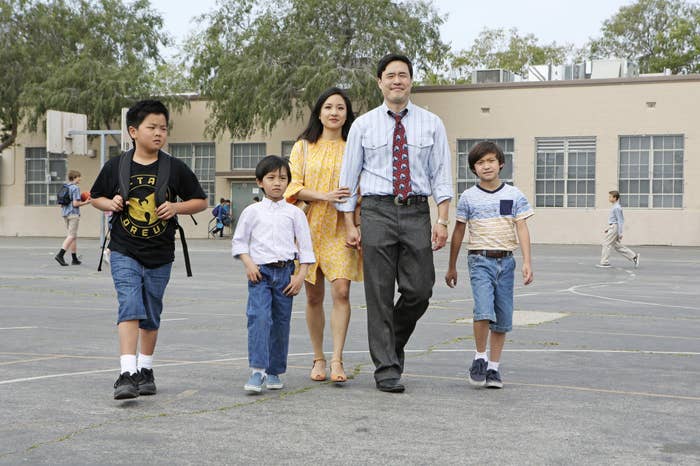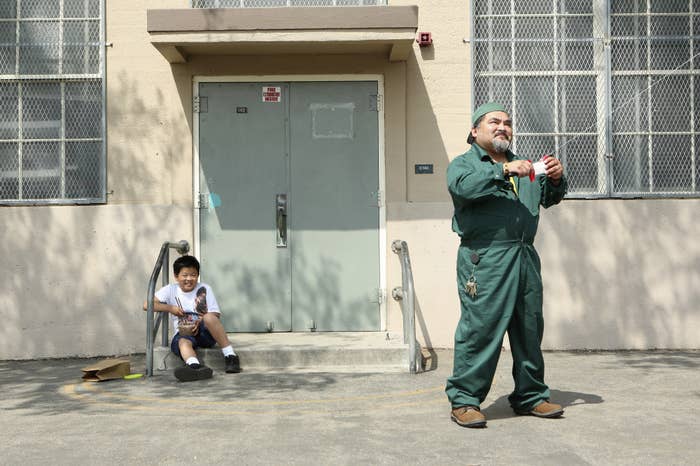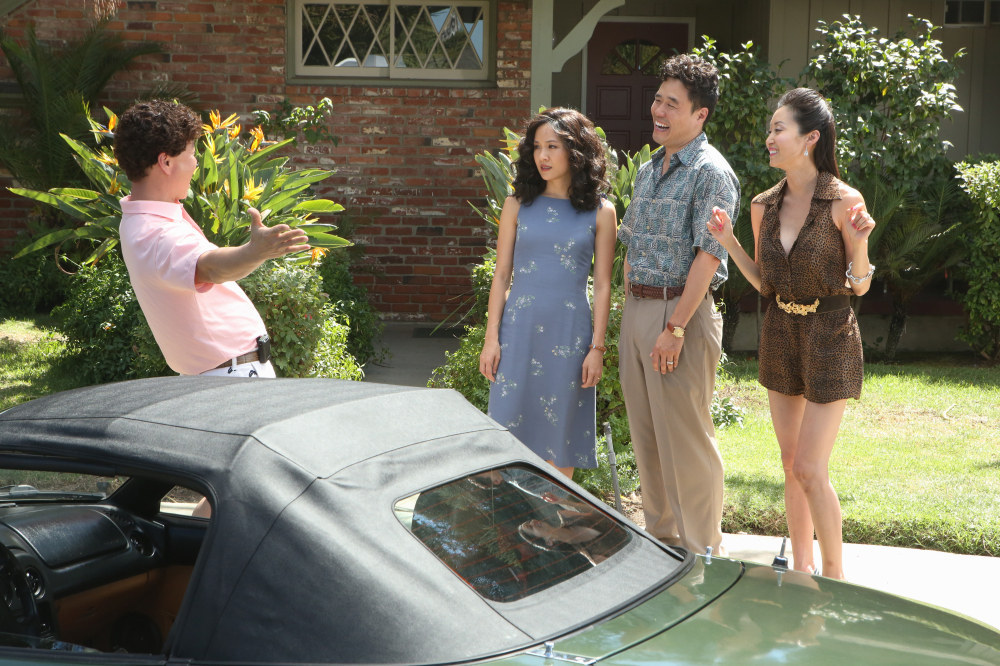
My mother is wholly uninterested in television, music, film, and all books except the Rich Dad, Poor Dad series. We are not best friends. We are, instead, loving but intolerable strangers in each other's lives: You can always tell I'm on the phone with her because the veins on my neck pop and my voice goes up an octave, even if I'm being perfectly polite (which I'm often not). You probably know how it is — families love each other even when we don't like or understand one another. And for us, not being able to understand each other comes with the territory. My mother is fluent and native in Mandarin, and I am not. We speak only English to each other, unless we're fighting: That's the only time my fluent Mandarin insults come right on out. There is so much unspoken between us, and the stuff that is spoken is often misunderstood. But for the past few months, we've spent half an hour a week next to each other, watching and discussing Fresh Off the Boat. These are the longest civil conversations I've ever had with my mother in my entire life.
I didn't actually expect to like Fresh Off the Boat, let alone share this time with my mother every Tuesday night, because criticism of the show — coming often from Eddie Huang, whose book inspired it — had made me so wary of the show's authenticity. I was suspicious of it being whitewashed, of yellowface, of other really reasonable things to be scared of when you belong to a demographic that pop culture so rarely does justice to. When the only Chinese-American role models you can immediately recall are cartoons (Mulan forever) or supporting roles alongside a white protagonist, you learn not to expect too much and exhaust yourself with disappointment. For the first minute of the pilot, I can't remember actually even breathing. But it turned out all of that angst wasn't necessary. The opening scene of the Huang family shopping, and the mom being shocked at the prices? Happened to me every shopping trip I can recall with my mother. Replace young hip-hop-obsessed Eddie's Nas shirt in the opening episode with a pop-punk Fueled by Ramen band tee, and you have me as a 10-year-old girl. Where Eddie listened to Biggie to find kinship as a black sheep, I listened to the openers of Warped Tour 2003 — but otherwise, I'm there. I've watched every episode twice for the sheer pleasure of seeing myself on-screen. Me, me, me, finally. I hadn't even realized what I'd been missing.

The more of the show I watched, the more I understood my own childhood wasn't just a series of unfortunate events related to my awkwardness, or my girlhood, but something much larger. I'd constantly faced racism as a mixed-race girl in school, and I'd chosen the easiest way through. Where Eddie struggles not for assimilation but for respect, I'd done the opposite. I'd been complicit in my own assimilation to whiteness because I was afraid of being disliked. Where Eddie fights against the bullies in his school and revels in his successful power plays episode after episode, I'd done the opposite. I didn't bother eating the dried pork sandwiches my mother had made me the way Eddie eats his stinky tofu outside of school: I just starved, or saved up for my own Lunchables. There were no other Taiwanese kids in school with whom I could carpool, like Eddie, but I was so afraid of being seen with my mother that I'd ask my white father to be the one to pick me up from school.
I made my mother disappear from my story.
And it worked. Within a few years at school, most people forgot I was even mixed. I went from being called Ching Chong the Chinese Chicken to being just another white girl — one identity to another, just like that. I'd had a tangible choice, and I'd chosen the easiest way out. I'd isolated my mother entirely. The immense failure I feel when I admit this is almost too overwhelming to articulate (but obviously, I'm trying). I relearned calligraphy to write her an apology recently, but it won't ever be enough. Rather than looking for apologies for time wasted, my mom is the practical sort. She wants time to matter now. So when she saw me watching an episode, she sat down. We watched five in a row. We had an hour-long discussion about the idea of the "Success Perm" (when Asians get perms to signify wealth), which she adamantly denied existed until I went to the bathroom and found all her perming tools and her hair dye, too. She called me a brat, which in Asian sensitivity-speak means that she loves me — something that Fresh Off the Boat understands and shows, too.

We've had plenty of arguments about the show, and even if she maintains that television is boring and real estate sales are the true pinnacle of fun, we have a half hour now every week where our identities intertwine. I asked her if she likes the show, and she says no: It's not accurate enough. But she still watches it with me, and we laugh, even when the show fails to be precisely our story as a dysfunctional family. Fresh Off the Boat makes no claims to show every Asian-American experience: just one, but it's an honest one. It's the only story that has illuminated small moments of humanity that I didn't remember that I owned. Even when it fails to represent all of us, it represents something in all of us — and for people starved to see themselves, that's a fortune. It has given me something I didn't think I'd ever earn, or even want: the knowledge that despite all my efforts to prove otherwise, I'm still my mother's daughter.
